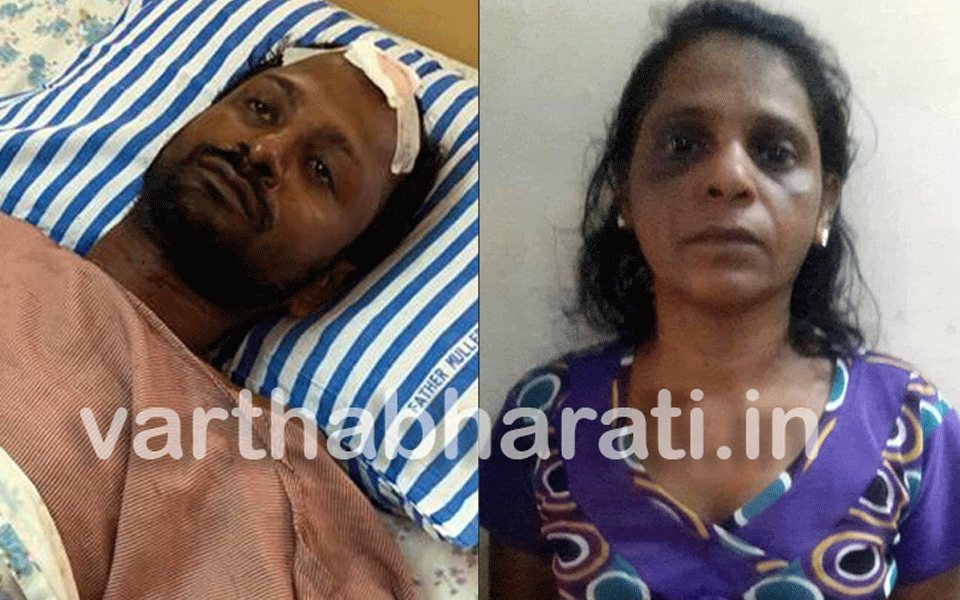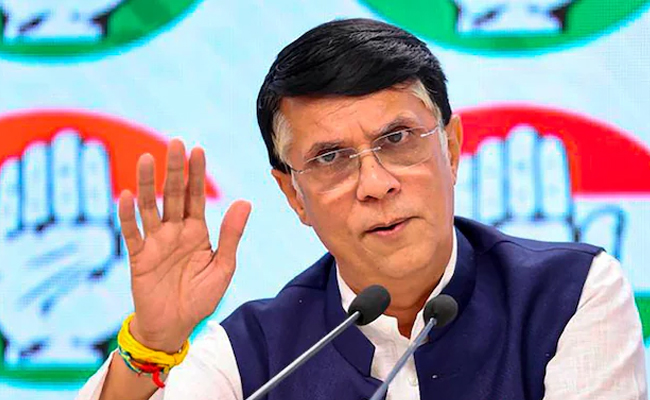Mangaluru (Karnataka), Sep 25: A court here has handed life imprisonment to two people involved in the gruesome murder of chit fund operator Shrimati Shetty in 2019.
On Tuesday, the First Additional District and Sessions Court in Mangaluru sentenced Jonas Samson (35) and Victoria Mathias (47) to life imprisonment for their roles in the murder. The third accused, Raju (34), was sentenced to six and a half months of simple imprisonment for his involvement in concealing stolen property.
Judge Mallikarjuna Swamy HS pronounced the sentence based on the charges established under various sections of the Indian Penal Code (IPC). Jonas Samson and Victoria Mathias were convicted under IPC Section 302 (murder) and Section 34 (common intent), resulting in life imprisonment and a fine of Rs. 25,000 each. If they fail to pay the fine, they will face an additional year of simple imprisonment.
ALSO READ: Mangaluru: Youngster dies during cosmetic surgery, family alleges doctor's negligence
Further, under IPC Section 201 (causing the disappearance of evidence) and Section 34, they were sentenced to seven years of simple imprisonment and fined Rs. 5,000 each, with an extra three months of imprisonment in case of non-payment. Additionally, for extortion under IPC Section 392 and 34, they received a five-year term with another fine of Rs. 5,000, leading to six months of additional imprisonment if unpaid.
Raju, the third accused, was convicted under IPC Section 414 for aiding in the concealment of stolen property and was fined Rs. 5,000, along with six and a half months of simple imprisonment.
As part of the judgment, the court directed that Shrimati Shetty's mother be paid a compensation of Rs. 75,000, and the funds be facilitated through the legal services authority.
According to police, the 42-year-old victim, was a resident of Attavara in Mangaluru and ran an electronics shop while also managing a chit fund business. Jonas had two memberships in her chit fund but defaulted on his monthly payments. When Shrimati Shetty visited Jonas' residence on May 11, 2019, at around 9:15 am to collect the due payment, a heated argument ensued.
In a fit of rage, Jonas struck her on the head with a wooden object, leaving her unconscious. Along with his wife, Victoria, Jonas proceeded to rob Shrimati Shetty of her gold ornaments before committing the act of murder. They dismembered her body into 29 pieces, placed them in plastic sacks, and scattered them across various locations in the city at night. Her belongings, including a vanity bag and slippers, were burnt inside their house to eliminate evidence.
The crime came to light three days later when a body part was discovered near a shop in Kadri, eventually leading to the recovery of her body parts in Nandigudde. Raju had also played a role in assisting Jonas and Victoria in the crime, police said.
Let the Truth be known. If you read VB and like VB, please be a VB Supporter and Help us deliver the Truth to one and all.
New Delhi (PTI): The Congress on Tuesday launched a scathing attack on Prime Minister Narendra Modi after Indian Youth Congress chief Uday Bhanu Chib was arrested in connection with the shirtless protest at the AI Impact Summit, saying the PM is "scared" of dissent and questions being asked of him.
Chib was arrested by Delhi Police in connection with the shirtless protest staged by a group of youth wing members at the AI Impact Summit here last week, officials said on Tuesday.
Police have also stepped up security across key locations in the capital in anticipation of possible protests following Chib's arrest, which took the total number of people held in the case to eight.
ALSO READ: Leh-bound SpiceJet plane faces engine issue; returns to national capital
Asked about Chib's arrest, Congress' media and publicity department head Pawan Khera told PTI Videos, "It is the duty of the opposition to protest in a democracy but a dictator will never understand this."
"If you hear the speech of that dictator in Meerut recently you will get to know that the word democracy does not exist in his dictionary," Khera said, in a swipe at the prime minister.
Chib as well as other colleagues are being arrested from various parts of the country, Khera, who is in Bhopal for the party's Kisan Maha Chaupal against the India-US interim trade deal, said,
"This shows that Narendra Modi is scared of dissent and questions being asked of him. Narendra Modi is emerging as the most cowardly Prime Minister in the world. He is being blackmailed, he is a coward, he is scared," Khera alleged.
"It has been the Congress' history that no matter how much oppression we face, we will continue to raise issues of the people and will keep fighting with 'Ahimsa'," he said.
Police had earlier arrested seven Indian Youth Congress (IYC) workers, including three from Gwalior in Madhya Pradesh, for the protest at the Bharat Mandapam last Friday. They have been identified as Jitendra Yadav, Raj Gujjar and Ajay Kumar.
In addition, IYC's Uttar Pradesh general secretary Ritik alias Monty Shukla has been detained from Lalitpur in the state.
Senior officers said additional force has been deployed at the sensitive points, particularly in New Delhi, a hotspot for political demonstrations.
Security has been tightened around the Tilak Marg police station, where Chib is presently held, while barricades have been put up at the strategic points, with anti-riot teams on standby.
Quick Reaction Teams (QRTs) and additional companies of paramilitary forces have also been placed on alert to respond to any law and order situation, officials said.
Senior officers have directed the field staff to ensure that traffic movement remains smooth.
On Friday, a group of IYC workers staged a dramatic protest inside Hall No. 5 of the summit venue by removing their shirts to reveal T-shirts printed with slogans against the government and the India-US interim trade deal, before being whisked away by security personnel.
Police said the accused had registered online and obtained QR codes to gain entry into the venue.
The incident triggered a political slugfest, with the BJP calling it a "shameful act to tarnish India's image on the global stage", and the IYC defending it as a "peaceful" demonstration aimed at safeguarding national interests.
VIDEO | Delhi: On arrest of Indian Youth Congress president Uday Bhanu Chib in connection with 'shirtless' protest staged by a group of IYC members at the AI Impact Summit last week, Congress leader Pawan Khera (@Pawankhera) says, "Protesting is the duty and responsibility of the… pic.twitter.com/2MOujnPDLX
— Press Trust of India (@PTI_News) February 24, 2026





